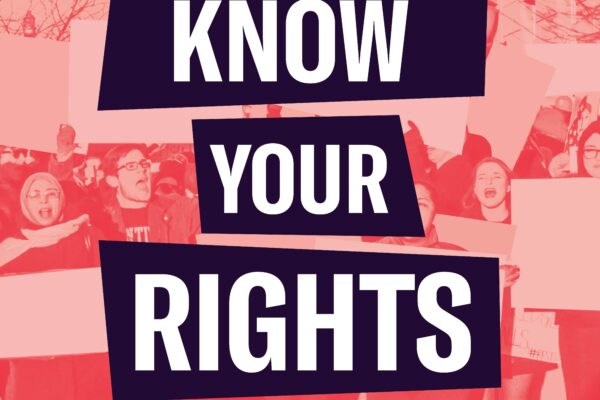The First Amendment protects your right to assemble and express your views through protest. However, police and other government officials are allowed to place certain narrow restrictions on the exercise of speech rights. Make sure you’re prepared by brushing up on your rights before heading out into the streets.
What to do if you believe your rights have been violated:
- When you can, write down everything you remember, including the officers’ badge and patrol car numbers and the agency they work for.
- Get contact information for witnesses.
- Take photographs of any injuries.
- Once you have all of this information, you can file a written complaint with the agency’s internal affairs division or civilian complaint board.
- If you have been arrested while protesting and are currently locked up, please call First Defense Legal Aid at 1-800-529-7374.
- If you encounter any problems while applying for a permit to protest, please contact us at acluofillinois@aclu-il.org.
- If you are not currently being detained but would like representation for protest related criminal charges, please contact the National Lawyers Guild.
Stay Informed
Sign up to be the first to hear about how to take action.
By completing this form, I agree to receive occasional emails per the terms of the ACLU’s privacy statement.
By completing this form, I agree to receive occasional emails per the terms of the ACLU’s privacy statement.

